Today’s feature comes to us from our companion service, Shooting News Weekly.
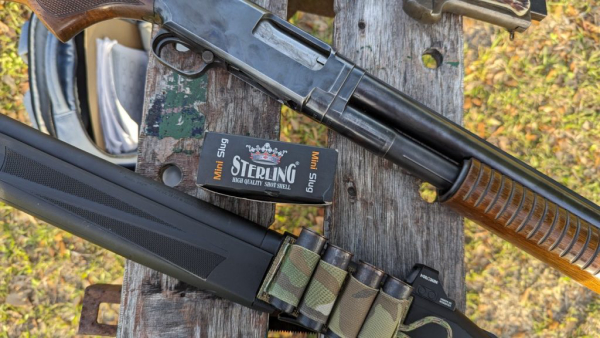
Sterling is a Turkish brand that most famously makes shotgun ammo. That’s seemingly appropriate for a country that exports heaps and heaps of shotguns to the US. The Sterling series of ammo has been pretty standard, pretty affordable, and pretty good. I’ve shot my fair share of it and found it to be a very decent option for budget ammo.
Imagine my surprise, then, when they released a mini slug round. A mini slug load that’s 50mm long.
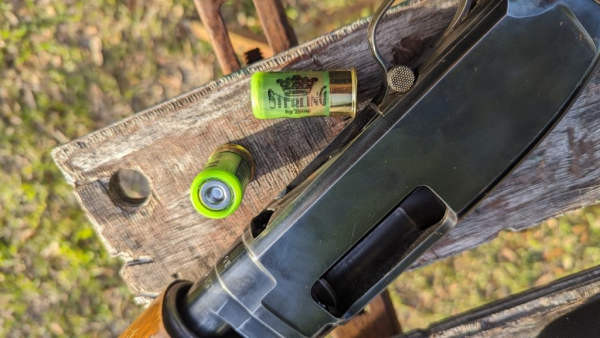
In freedom units that’s 1.96 inches, a little longer than the 1.75-inch loads and shorter than Takho’s 2-inch slugs…but just barely. The Sterling slugs differ from the other slug options out there by offering you a 1-ounce slug moving at 1,380 feet per second. That takes you beyond the realm of mini shells and places you in the same neighborhood as most tactical 2.75-inch slugs.
Out of curiosity, I knew I had to grab a few boxes and hit the range.
The Sterling Mini Slugs and Shotguns
One of the biggest selling points of mini slugs is increased capacity. My Mossberg 590A1 can hold seven 2.75-inch rounds in the tube, but with the mini slugs I can fit nine rounds into the tube. In the variety of shotguns I tried the general rule is, you can fit an extra couple of rounds in the tube when shooting minis.
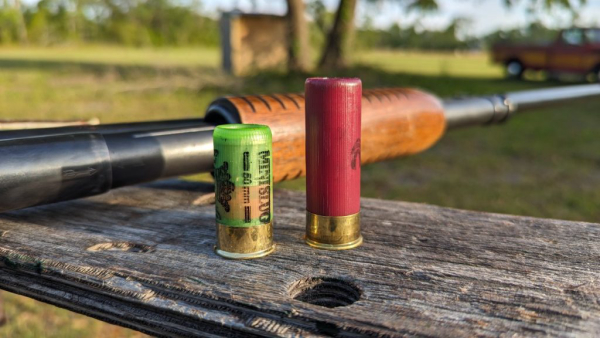
I ran a handful of the Sterling shells through various guns to see just how well they cycled without any special adapters. In most guns, they did pretty well. The skeletonized lifter of the 590 caused an occasional issue. My Defender Tactical mini shell adapter-equipped Mossberg 590 cycled the rounds without a hiccup.
The 870 did fine with one Sterling Mini Slug twisting in the eight rounds I loaded. The Winchester Model 12 did perfectly, as did the Ithaca 37. They seem to cycle fairly reliably, but the extra room could always allow for a bit of twisting and movement. For serious use, a Mossy with the Defender Tactical adapter would be the way to go.
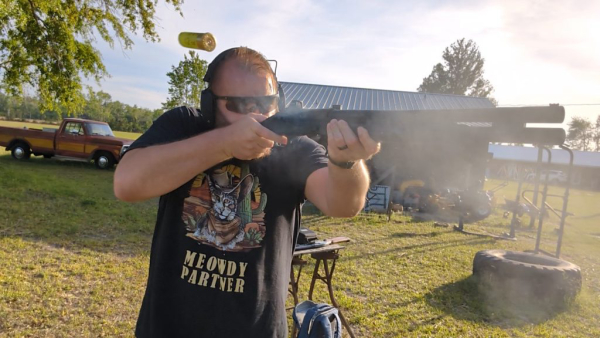
How do the Sterling mini slugs function with a semi-auto? Oh, they don’t do well. They could, but they don’t. They’re powerful enough to cycle the action and can even occasionally feed a second round. However, this only works if you have one in the chamber and one in the magazine tube.
Any more than that, and two rounds are fed onto the shell lifter and jam the gun. If you have one in the chamber and one in the tube, it might work, but not always because it may twist inside the action.
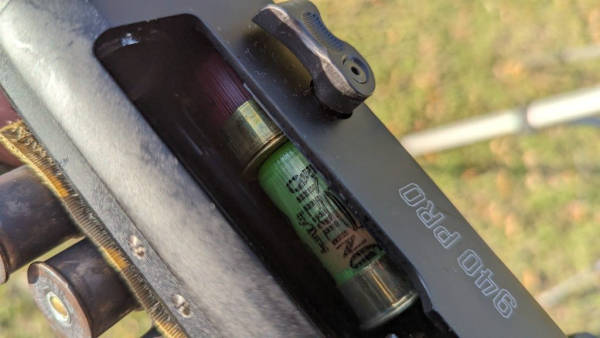
These would seemingly work if something like the Defender Tactical adapter existed for semi-auto shotguns.
To The Range with the Sterling Mini Slugs
The Sterling Mini Slugs offer reduced recoil, but they have more recoil than most mini slugs. It took me by surprise, though it’s not exactly rough. However, after a tube of eight of these things, they leave you feeling a little sore. It’s not like a tube of eight rounds of standard buckshot, but it’s close to that.
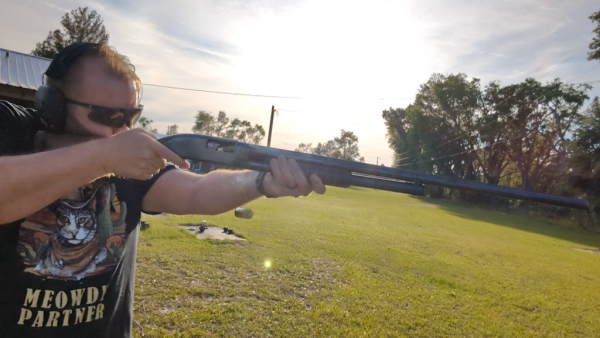 The accuracy of the Sterling Mini slugs was surprisingly good. I fired these things from a Winchester Model 10 with a 30-inch barrel, and the accuracy was dead-on at 25 and 50 yards. In fact, I fired four rounds at a headshot target at 25 yards with a bead sight and produced what I think is an impressive group. Well, three out of four are impressive, but I’m solely responsible for that low flyer.
The accuracy of the Sterling Mini slugs was surprisingly good. I fired these things from a Winchester Model 10 with a 30-inch barrel, and the accuracy was dead-on at 25 and 50 yards. In fact, I fired four rounds at a headshot target at 25 yards with a bead sight and produced what I think is an impressive group. Well, three out of four are impressive, but I’m solely responsible for that low flyer.
At 50 yards I took my time making a 10-inch steel gong swing. It’s funny how fast and hard you can make that gong swing with hits by slugs. I fired the gun in a rested position to achieve that accuracy with a bead sight. A good red dot, or some decent iron sights and I could be a regular sharp shooter with these slugs.
The Best Slugs Yet
So far, the Sterling Mini Slugs might be the best performing of the mini slug options. An ounce of lead moving at around 1,300 feet per second is impressive. While the slugs feed mostly reliably, they’re best suited for guns with adapters for reliable feeding. In a gun with one of these adapters you could do some serious slug work.
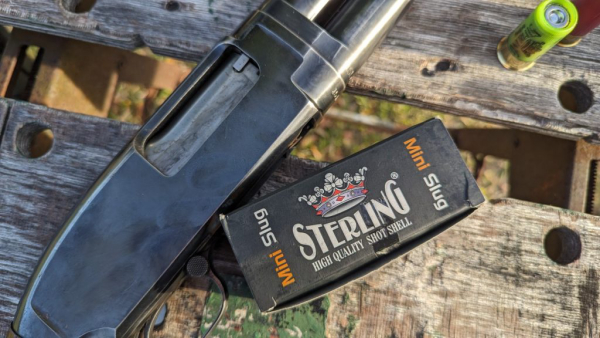
One of the downsides to shotguns is their bulky ammo. These slugs offer a smaller shell that’s lighter and easier to carry. For some kind of survival scenario, the Sterling Mini Slugs could be a viable option. They offer longer-range hitting power and in a single-shot survival shotgun, they’d function perfectly.
I’d like to see what Sterling could do with mini buckshot loads, and maybe that’s the next option. Give me a 2-inch mini shell with six pellets of No. 1 buckshot at around 1,150 feet per second and we’re cooking with gas. For now, these slugs are doing pretty darn good.
— Travis Pike
